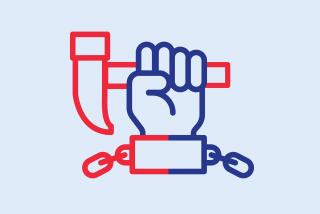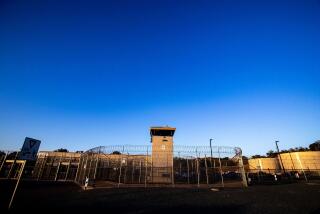Don’t Force Lawyers to Join the State Bar
The State Bar of California was humiliated this month when Janice Rogers Brown, the first female African American nominee to the California Supreme Court, was unanimously confirmed by the state’s three-member Commission on Judicial Appointments.
The confirmation occurred despite a roundly criticized, politically motivated rating of “unqualified” by the state bar’s Judicial Nominees Evaluations (“Jenny”) Commission. Commission members also tried some petty, behind-the-scenes moves to disqualify Chief Justice Ronald M. George, Atty. Gen. Dan Lungren and Court of Appeals Presiding Justice Robert K. Puglia, who constitute the appointments commission, from voting. Former California Supreme Court Justice Armand Arabian described the rating of Brown as a “well-orchestrated hit,” and called the Jenny Commission members a “network of agenda-driven snipers who couldn’t shoot straight.” In the wake of this blunder, how can the state bar become more responsive to its members and the public?
Fortunately, attorneys now have an opportunity to speak out on the problem. Thanks to a measure passed by the Legislature last year, California’s lawyers will vote Friday in a plebiscite on the question of whether membership in the state bar should be mandatory.
A voluntary bar for California is long overdue. Today, a lawyer cannot practice unless he or she is a member and pays dues of almost $500 per year, highest in the nation. Much of the state bar’s $50-million budget is misspent, poured into a vast bureaucracy, frittered away on expensive and unproductive projects and used to fund the bar’s left-leaning public-policy agenda.
The state bar exists for the express purpose of regulating the legal profession and improving the quality of legal services in the state. However, many of the bar’s activities do little to advance these goals. For instance, the bar recently spent millions on a new headquarters in expensive, downtown San Francisco, complete with highly paid executives and a staff of hundreds. The bar spends almost 30% of its budget on administrative overhead--$19 more per member than the total amount of dues paid by lawyers in New Jersey. With today’s computer-based technology, this type of capital investment no longer is reasonable.
The political agenda of the bar also exceeds the purposes for which the organization exists. The Pacific Legal Foundation, a Sacramento-based public interest law firm, has been engaged in hand-to-hand combat with the state bar in court over its improper use of members’ dues to fund a political agenda that many lawyers disagree with. Deborah LaFetra, an attorney with the PLF, has observed that the state bar spends members’ dues to advance political causes such as commissioning studies on legalizing drug use and supporting legislation that would allow convicted murderers to go free if they could show they suffer from “battered woman syndrome.” LaFetra noted that a mandatory bar allows a minority of liberal activists to speak on behalf of all of California’s 119,000 active lawyers.
The attack against Justice Brown by the secretive 27-member Jenny Commission has only served to galvanize opposition to the bar’s social and public-policy agenda. In recent years, the commission has sought to kill a whopping 25% of all judicial appointments by Republican governors, who have no recourse except to ignore the recommendation. The bar continues to push for aggressive (and probably illegal) affirmative action programs and employment quotas for bar positions.
To protect its turf, the state bar’s board of governors is vigorously opposing the plebiscite. The board would prefer to continue the Imperial Bar, with its aloof, out-of-touch and costly leadership.
A voluntary bar isn’t just good for member lawyers; it is also good for the body politic. A voluntary bar would require more responsiveness on the part of its leaders to attract and retain members. Any political activities would more accurately represent members’ views, instead of falsely implying that the organization’s liberal agenda reflects the views of all or even most of California’s lawyers. Of the 49 other states, half have moved to implement a voluntary bar.
If lawyers take seriously their mission to reform the state bar and join the legal mainstream, they should vote yes in the plebiscite. Otherwise, a noisy, active left-wing minority will continue to dominate bar policies for years to come.
More to Read
Get the L.A. Times Politics newsletter
Deeply reported insights into legislation, politics and policy from Sacramento, Washington and beyond. In your inbox three times per week.
You may occasionally receive promotional content from the Los Angeles Times.










